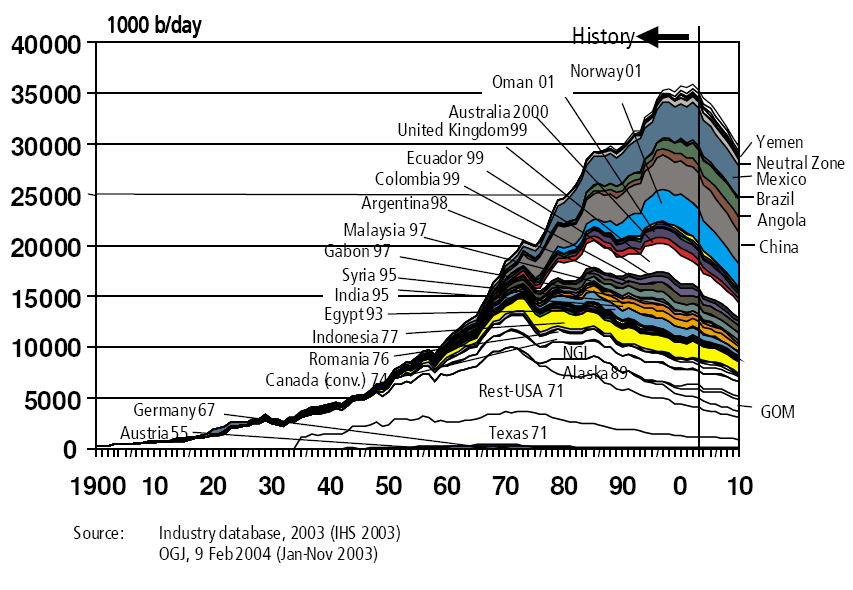-
Asked by otiti to Amy, Karen, Sarah, Vijay, Will on 18 Jun 2012.0
Question: How long will it take for fossil fuels to run out and what renewable energy source would the world mostly rely on when it runs out?
- Keywords:
-
Will Reynolds answered on 18 Jun 2012:
Hi otiti. No one really knows when fossil fuels will run out completely. But there will be a point when demand for oil is higher than what we can get out of the ground, which is called ‘peak oil’ and when this happens it will becomes very expensive. It is likely that the rising cost of oil will be the incentive for renewable energy generation to expand and become our main source of energy. There are several different renewable energy technologies that are being developed and they will all need to be used together to provide enough energy. Wind turbines work best on hills and out at sea, wave power is good near the shore and in river esturies, most energy will probably be generated by solar photovoltaic (direct conversion of light to electricity) but these are expensive at the moment and need more development. Biofuels from agricultural waste and algae will be important as a medium term technology because they can be a direct substitute for fossil fuel, but we probably wont be able to produce enough to rely on biofuel alone. Nuclear power is probably going to expand because it is actually a very clean technology, it just has issues with disposing and controlling radioactive waste. In short we will need lots of different solutions to replace fossil fuels and they need to be cheap enough to compete with fossil fuels before they become widely accepted. Hope this helps.
-
Sarah Martin answered on 20 Jun 2012:
Hi otiti,
Great question! Will has this one well covered! I’ll add some estimates for fossil fuels – and other non-renewable resources! It’s not so much a question of when they’ll run out, as to when the production will be at its highest – the peak – after that it’ll be harder and harder to find more and mine it, so while there’s still some left, there won’t be enough for everyone and it will get very expensive.
There are lots of different estimates for when the peaks of fuels will occur, so I’m giving a few that come from scientific sources without stakes in the industry, and that are likely to be objective:
– Peak coal in 2025 (Coal: Resources and Future Production. Energy Watch group. 28 March 2007, revised 10 July 2007)
– Peak gas in the 2030s (US Energy Information Administration: Table 5. World natural gas production by region and country, 2005-2030)
– Peak oil is difficult to predict – estimates vary between it already happened in 2006 and that we’re on a long flat peak for another 100 years with more oil fields being exploited as the price rises (see )
)
– Peak Uranium – with 2002 world nuclear electricity generating rates there’s enough to last 85 years using known resources and 270 years using undiscovered ones. With better technology, this could be extended to 8,500 years. ( “Uranium Resources 2003: Resources, Production and Demand” (PDF). OECD World Nuclear Agency and International Atomic Energy Agency. 2008-03. p. 65. )Another resource we need that is likely to peak in the next 20 years is Indium – a metal needed in electronic devices like mobile phones, but also in solar cells!
As for renewable energy, it really depends on where you are – in a sunny country it’s solar cells, in a windy place it’s wind turbines, in a hilly place with rivers it’s hydroelectrics. Electricity is actually really easy to make form renewables – the big problem with electricity is that it’s really hard to store in large quantities for “later”, and also really difficult to transport over distances without losing it all!
So lots of challenges for science there! One of the big reasons I became a scientist, this has been one of my big interests since I was at school.
🙂 Sarah

Comments